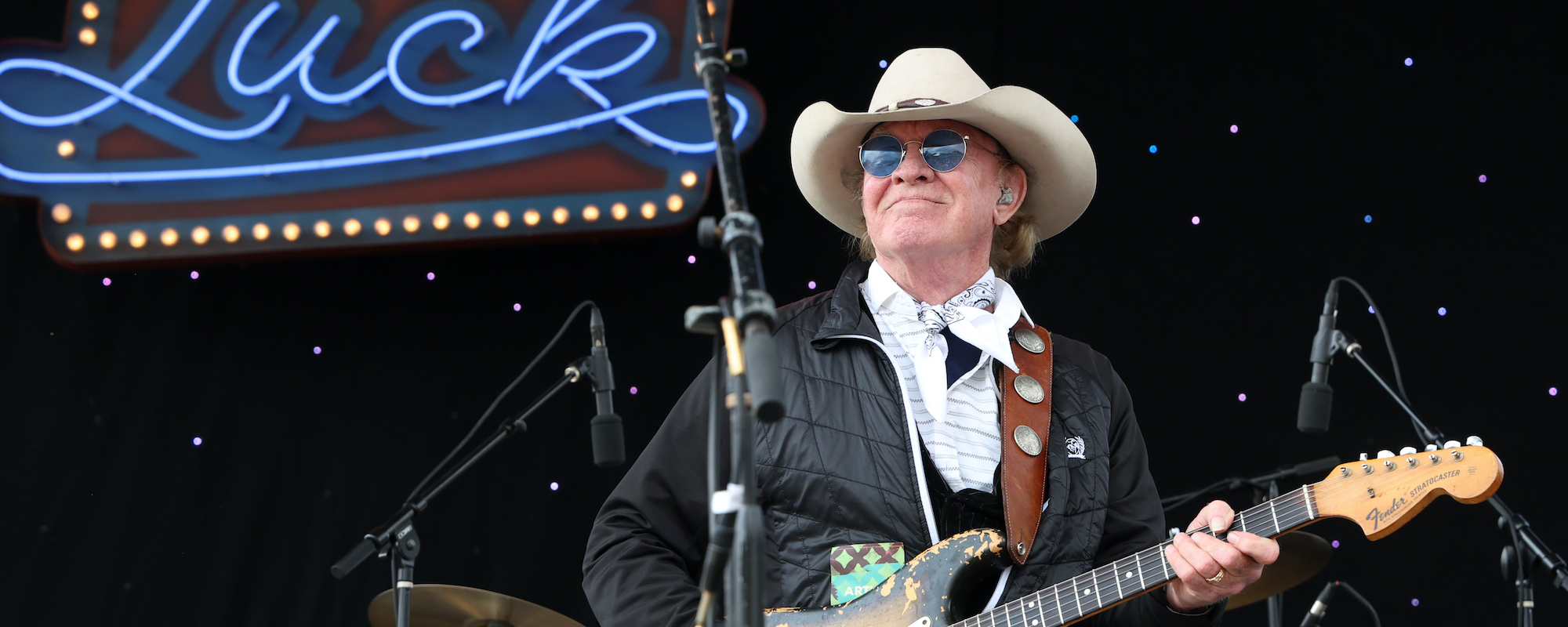When Vince Gill recorded “One More Last Chance,” he borrowed an old story from a legend. George Jones, the hard-living and definitive country singer, inspired his musical heir with a life that was a country song.
Videos by American Songwriter
Gill’s easy tenor turned a made-for-TV drinking tale into a chart-topping hit. It all started decades earlier when the “Rolls-Royce of Country Singers” got around to driving something a little less classy.
A Marriage Straight Out of a Country Song
“One More Last Chance” is about a wife fed up with her drunk husband. She wants to spend time with him, but he chooses his friends instead.
She was standing at the front door
When I came home last night
A good book in her left hand
And a rollin’ pin in the right
She said you’ve come home for the last time
With whiskey on your breath
If you don’t listen to my preachin’ boy
I’m goin’ to have to beat you half to death
He begs for one more chance, but when his friends call from a honky tonk, he can’t say no. She hides his glasses and takes the car keys away, but Gill’s character, inspired by Jones, sneaks off to the bar on a riding lawnmower. Problem solved.
First, she hid my glasses
Because she knows that I can’t see
She said you ain’t goin’ nowhere, boy
Till you spend a little time with me
Then the boys called from the honky tonk
Said there’s a party goin’ on down here
Well, she might’ve took my car keys
But she forgot about my old John Deere
“But get there I did”
Jones lived a tumultuous life. He’d binge drink and disappear, earning the nickname “No Show Jones” for reliably missing concert appearances.
The story behind Gill’s John Deere reference goes like this.
In 1966, Jones lived in an East Texas suburb with his second wife, Shirley Corley. Desperate to keep him from the liquor store, she hid the car keys.
After Corley left the house, Jones searched without luck for the keys. But a solution lay right outside his window. He reminisced about the incident in his autobiography: “There, gleaming in the glow, was that ten-horsepower rotary engine under a seat—a key glistening in the ignition. I imagine the top speed for that old mower was five miles per hour. It might have taken an hour and a half or more for me to get to the liquor store, but get there I did.”
Jones later memorialized the episode in “Honky Tonk Song.”
However, the story has a variety of accounts. Or Beaumont wasn’t the only time Jones used lawn equipment for transportation.
His former lawyer, John Lentz, said the mower incident happened in Nashville. And he and Tammy Wynette followed Jones to Colonial Liquors. Still, Wynette gives another account in her memoir, Stand by Your Man.
She woke up in the middle of the night to find Jones missing. “I got into the car and drove to the nearest bar 10 miles away. When I pulled into the parking lot, there sat our rider-mower right by the entrance. He’d driven that mower right down a main highway. He looked up and saw me and said, ‘Well, fellas, here she is now. My little wife, I told you she’d come after me.’”
Tales from the Tour Bus
Gill wrote “One More Last Chance” with Gary Nicholson. It appeared on his fifth album I Still Believe In You, produced by Tony Brown. The single topped the country charts, and the album reached No. 10 on the Billboard 200.
John Lloyd Miller directed the music video, which follows Gill driving his John Deere mower to the golf course. The video ends with Jones and Gill riding past each other, each on a John Deere.
Moreover, to honor Jones’s ingenuity, a mural of the country star on his mower was painted on the side of Nashville’s Colonial Liquors, a stop he frequently made.
The painting borrowed a scene from the animated docuseries Tales from the Tour Bus, created by Mike Judge (Beavis and Butt-Head, King of the Hill).
Truth or Legend
“One More Last Chance” is a familiar story, and it doesn’t matter if the oral history was invented or embellished; it’s a piece of George Jones lore.
Country songs are known for hardship stories but are equally famous for dry wit. Some lives are so out of control that, with enough distance, you can tip your hat to the absurd desperation to get to the liquor store by any means necessary.
Though it’s probably wise to leave it in a country song.
When you purchase through links on our site, we may earn an affiliate commission.
Photo by Terry Wyatt/Getty Images













Leave a Reply
Only members can comment. Become a member. Already a member? Log in.